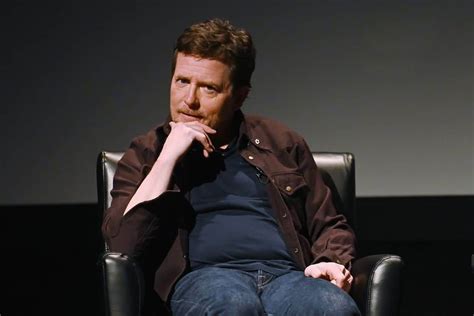A Quote by Gilbert K. Chesterton
A man was meant to be doubtful about himself, but undoubting about the truth; this has been reversed. Nowadays the part of a man that a man does assert is exactly the part he ought not to assert - himself. The part he doubts is exactly the part he ought not to doubt - the Divine Reason.
Related Quotes
Is not life exactly what it ought to be, in a certain sense? Isn't it only the naive who find all of this baffling? If you've a notion of what man's heart is, wouldn't you say that maybe the whole effort of man on earth to build a civilization is simply man's frantic and frightened attempt to hide himself from himself?
The average man votes below himself; he votes with half a mind or a hundredth part of one. A man ought to vote with the whole of himself, as he worships or gets married. A man ought to vote with his head and heart, his soul and stomach, his eye for faces and his ear for music; also (when sufficiently provoked) with his hands and feet. If he has ever seen a fine sunset, the crimson color of it should creep into his vote. The question is not so much whether only a minority of the electorate votes. The point is that only a minority of the voter votes.
Therefore the good man ought to be a lover of self, since he will then both benefit himself by acting nobly and aid his fellows; but the bad man ought not to be a lover of self, since he will follow his base passions, and so injure both himself and his neighbors. With the bad man therefore, what he does is not in accord with what he ought to do, but the good man does what he ought, since intelligence always chooses for itself that which is best, and the good man obeys his intelligence.
There is no deception on the part of the woman, where a man bewilders himself: if he deludes his own wits, I can certainly acquit the women. Whatever man allows his mind to dwell upon the imprint his imagination has foolishly taken of women, is fanning the flames within himself -- and, since the woman knows nothing about it, she is not to blame. For if a man incites himself to drown, and will not restrain himself, it is not the water's fault.
The cause of all the blunders committed by man arises from this excessive self-love. For the lover is blinded by the object loved; so that he passes a wrong judgment on what is just, good and beautiful, thinking that he ought always to honor what belongs to himself in preference to truth. For he who intends to be a great man ought to love neither himself nor his own things, but only what is just, whether it happens to be done by himself, or by another.
In philosophical anthropology, ... where the subject is man in his wholeness, the investigator cannot content himself, as in anthropology as an individual science, with considering man as another part of nature and with ignoring the fact that he, the investigator, is himself a man and experiences this humanity in his inner experience in a way that he simply cannot experience any part of nature.
It´s a good thing when a man is different from your image of him. Is shows he isn´t a type. If he were, it would be the end of him as a man. But if you can´t place him in a category, it means that at least a part of him is what a human being ought to be. He has risen above himself, he has a grain of immortality.
Everyone who observes himself doubting observes a truth, and about that which he observes he is certain; therefore he is certain about a truth. Everyone therefore who doubts whether truth exists has in himself a truth on which not to doubt.... Hence one who can doubt at all ought not to doubt the existence of truth.
As Lucretius says: 'Thus ever from himself doth each man flee.' But what does he gain if he does not escape from himself? He ever follows himself and weighs upon himself as his own most burdensome companion. And so we ought to understand that what we struggle with is the fault, not of the places, but of ourselves



































